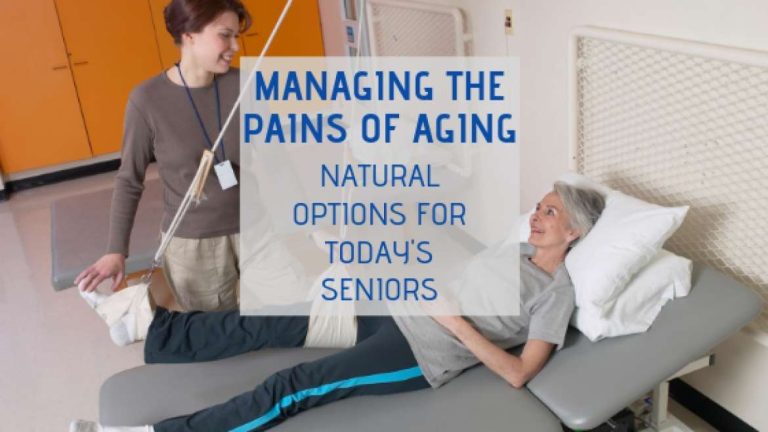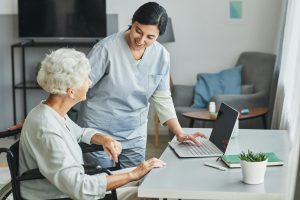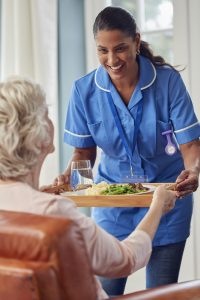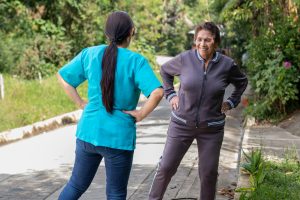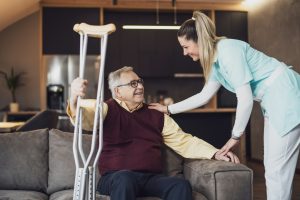As we grow older, aches and pains often become part of everyday life. Stiff knees, sore muscles and achy joints can make the simplest of activities a pain while chronic conditions, such as arthritis and diabetes, can leave seniors homebound.
With multiple health conditions and easy access to medication, many seniors have fallen victim to the opioid crisis that has hit the U.S. In fact, according to a study from the Agency for Healthcare Research and Quality, four million seniors fill prescriptions for four or more opioids at one time because of their dependency on the drugs.
The good news? Researchers found that when seniors focus on pain management rather than pain elimination, they’re less likely to rely on medication and more likely to enjoy a higher quality of life. For many seniors, this new way of thinking means finding alternatives to traditional treatment.
Escaping the Pill Bottles
When it comes to chronic pain, the Centers for Disease Control recommends that healthcare providers set realistic goals with their patients to manage the pain and help them rewire their mental thinking and physical movements to adjust to this change in their lives. This often means combining over-the-counter medications like ibuprofen and acetaminophen with holistic pain treatment:
- Physical therapy – Physical therapy isn’t only for recovery following an injury or illness. PTs can help reduce the stiffness and pain of arthritis, control the vertigo and dizziness that come with a vestibular condition, and prevent foot wounds due to diabetes.
- Acupuncture – The ancient practice of inserting needs into the body to stimulate certain nerves and release the body’s pain-minimizing endorphins has been found to relieve pain in 50 percent of patients.
- Talk therapy – A chronic condition affects one’s mental health as much as their physical health. A pain psychiatrist or cognitive behavioral therapist can help patients learn techniques to regulate their sensory experiences and develop coping skills.
- Biofeedback – A traditional therapist or PT may also suggest biofeedback, in which seniors are attached to sensors which allow them to identify relaxation techniques that control involuntary bodily processes, including pain.
- Massage – A professional massage not only eases the pain of muscles and joints directly, but also stimulates the nerves that block pain messages from getting to the brain. One study, for instance, found that the pain reduction effects of massage are similar to anti-inflammatory drugs.
- Essential oils – While the jury’s still out on the effectiveness of essential oils, medical professionals say they can’t hurt. Remarked Dr. Brenda Powell of the Cleveland Clinic, “They (the plant chemicals) can alter your perception of pain and potentially improve your mood.” Oils like cinnamon, ginger or lavender can be put in an air diffuser or diluted and massaged into sore muscles.
- Exercise – A sedentary lifestyle can increase the pain in your neck and back. The more active you keep your joints and muscles, the better off they are in the long run. Doctor-approved exercise classes geared toward seniors and Silver Sneakers programs can guide you toward the best movements for pain relief.
How home health care can help
With 125,000 seniors hospitalized with opioid complications each year, the shift to holistic care is continually growing. However, it’s best to consult with a doctor before putting any treatment into action to avoid potential drug interactions or aggravating an injury. It is also vital to consult with your physician before tapering off of opiate medication and to do so only under medical supervision in order to prevent serious side effects. Once a patient is cleared for treatment, a home health care provider, social worker and physical therapist can work together on a comprehensive plan to help seniors live their best lives possible, free from the side effects of prescription drugs and the dependency too often associated with them.

